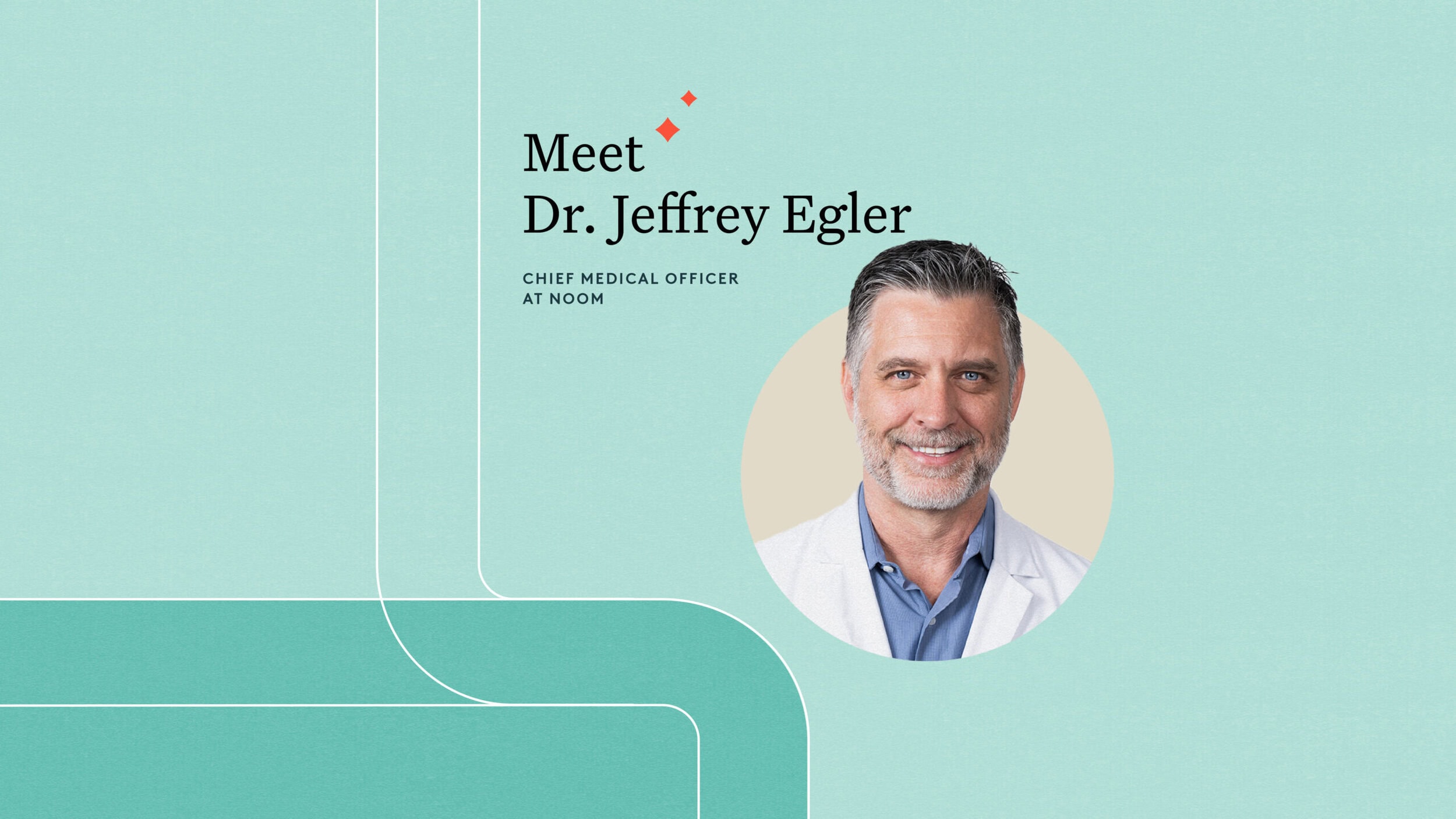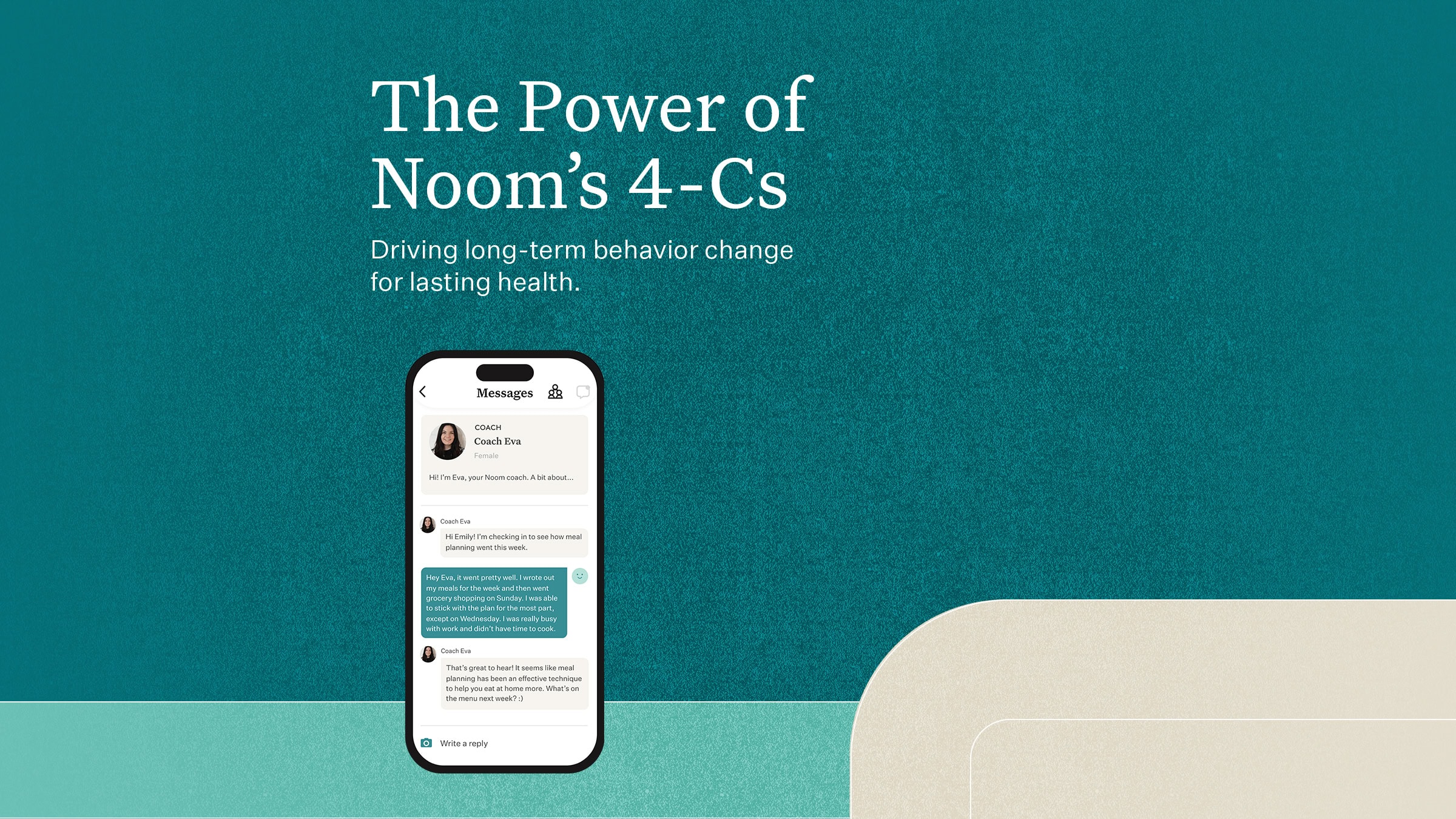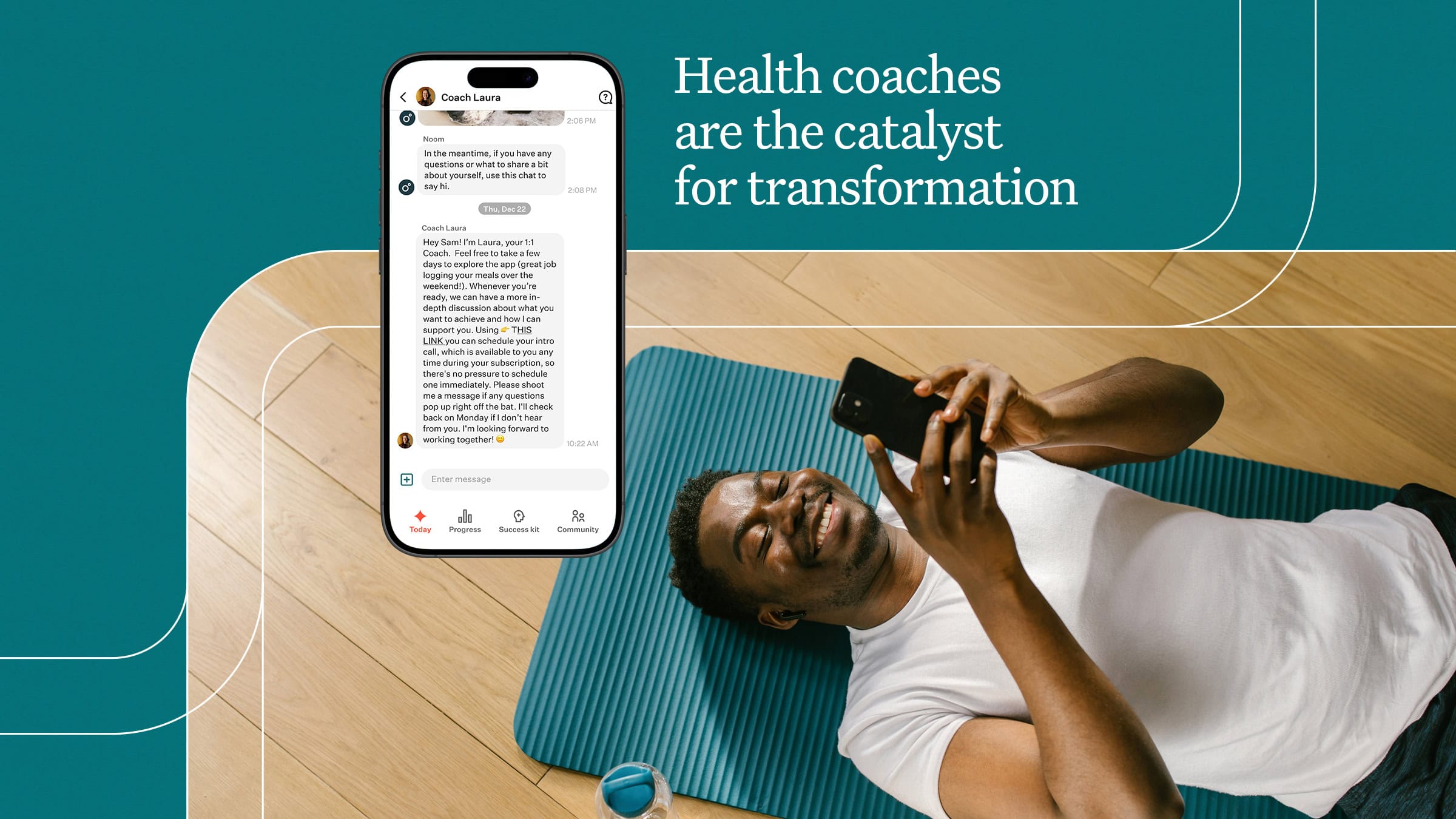Meet the Noom Clinical Team: Dr. Jeffrey Egler, M.D., Chief Medical Officer
- Blog
- Noom Health
- July 28
Summary
Get to know Noom's new Chief Medical Officer, Dr. Jeffrey Egler, M.D., as he shares his professional background, what it will take to drive lasting health outcomes and a healthier future, and what he's most excited about in his new role at Noom.

Dr. Jeffrey Egler, M.D., recently joined Noom as Chief Medical Officer. A double board-certified physician in Family Medicine and Lifestyle Medicine, Dr. Egler brings a wealth of experience to Noom, from full spectrum Family Medicine to Spiritual Psychology and Longevity Medicine. Learn more about Dr. Egler’s background, his role at Noom, and why he thinks behavior change, education, and access are pivotal to building a healthier future.
1. Tell us about your professional experience prior to joining Noom
I completed my residency in family medicine at the University of Colorado in Denver and completed a Faculty Development Fellowship in Academic Medicine at UCLA. For the first five years of my career, I practiced what’s known as “full-spectrum” family medicine. That means I cared for adults and children, delivered babies, and worked in a variety of settings—including doctors’ offices, emergency rooms, intensive care units, and even operating rooms. This wide-ranging experience prepared me to take on a teaching role as a member of the faculty at the University of Southern California (USC), where I helped train the next generation of doctors.
There were some big changes that I wanted to make to my life, which led me to complete a master’s degree program in Spiritual Psychology. This changed the course of my career. I started on a path that began with certification training in Functional Medicine and subsequently became a double board certified physician in Lifestyle Medicine (in addition to Family Medicine). Over the past 10 years, I have held a variety of positions that have contributed to my continued evolution in medicine, including concierge medicine, Medical Director of Parsley Health, Medical Director of the Inspire Health Center at Adventist Health, and Medical Director at Next Health, a Longevity and Wellness Center.
2. What made you want to join Noom?
I was excited to join Noom because of Noom’s interest in making longevity their North Star and because I believe that digital health is the future of wellness and medicine. Most importantly, Noom at its core is a behavioral change platform, which I have learned first-hand in my own life is the central issue in true transformational living.
3.Why do you think behavior change is so critical in driving lasting health outcomes?
Conventional medicine’s approach is to define the problem (i.e. make a diagnosis) and offer a solution, which is typically a pill, procedure, or surgery. This is done in an effort to be efficient, but it is misguided. In many cases, this approach addresses only the symptoms of the problem, which are the endpoints, rather than the true root of the issue. Behavior change helps to address problems at their core and their root, whether it’s a poor diet, a sedentary lifestyle, or bad sleep habits.
4. What do you feel plays the biggest role in building a healthier future?
Education and access. We live in the Age of Information, but unfortunately, much of it is misinformation. And even in this extremely technological and modern era, there are limits to science and what we know to be absolute truths. We need to be able to identify the best information and figure out how to best distribute it to educate each generation to help them understand the best paths forward to a life well-lived.
We also have to be able to identify and provide access to realistic, manageable, and actionable solutions – ones that are curated and personalized to the individual. Otherwise, they won’t work. That’s one of the strengths of Noom Health. Our solutions focus on making habit formation sustainable, addressing the root causes of unhealthy behaviors and then providing reliable information and real-world strategies to help people overcome daily challenges and build the skills for healthier living.
5. What are you most excited about in your new role with Noom?
Noom has demonstrated for over a decade to be a rare, practical, and successful solution to one of our culture’s most challenging problems – managing the conditions of overweight and obesity. We know that 60% of related factors to individual health can be correlated to lifestyle. Given the rising rates of chronic disease in the U.S., the possibility Noom brings to both consumers and payers is not only powerful, it is incredibly exciting. I believe Noom has created a platform and a program upon which potentially any problem can be loaded and solved through behavior change. The future of population health lies in this approach and in digital health platforms like Noom that have the ability to reach people at scale.
Bring Noom to
your organization
Give your workforce a preview of what’s possible
for their physical and mental health.



